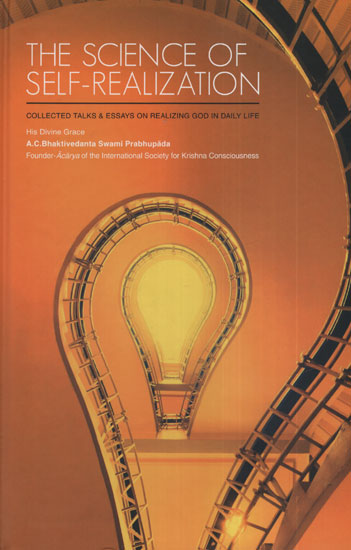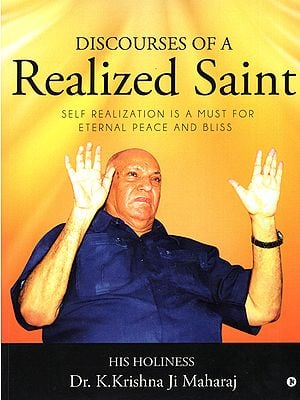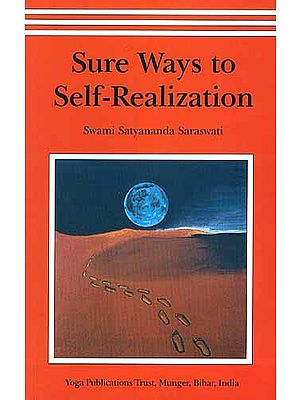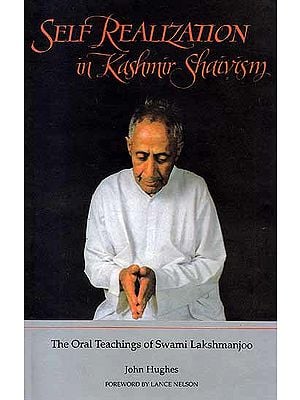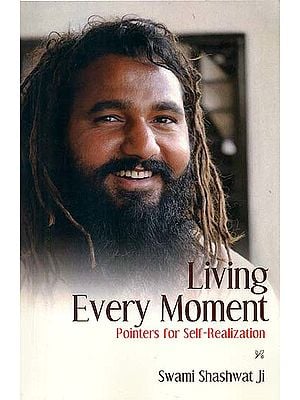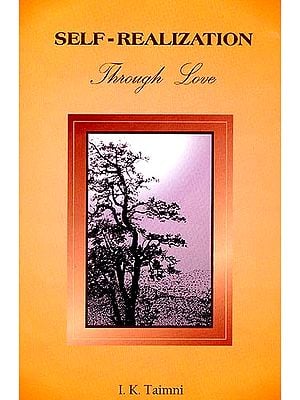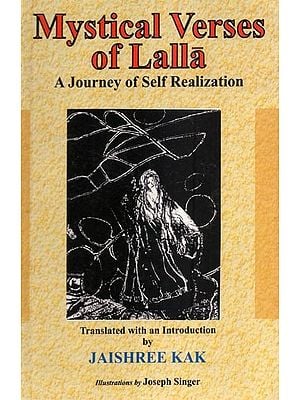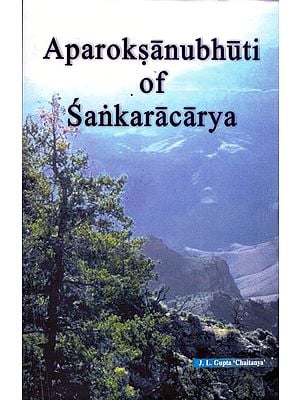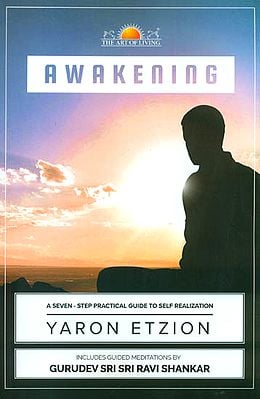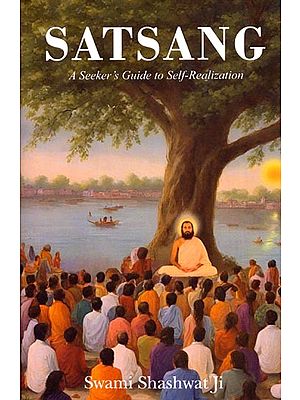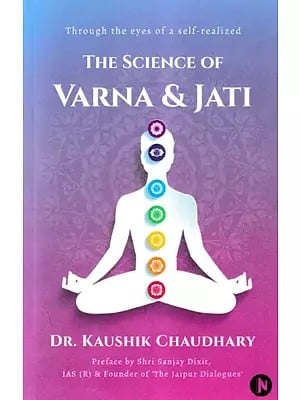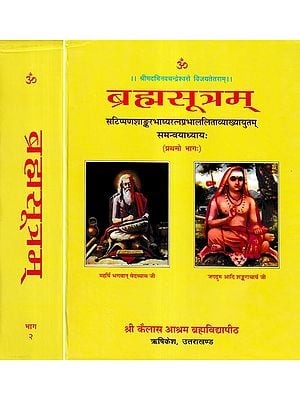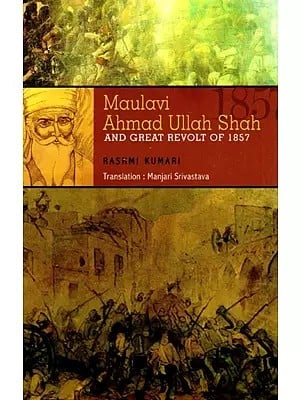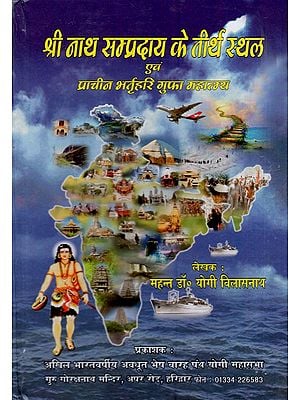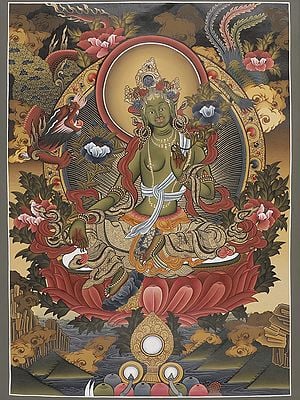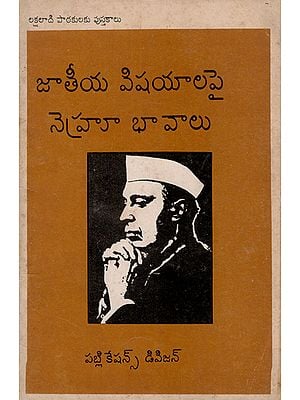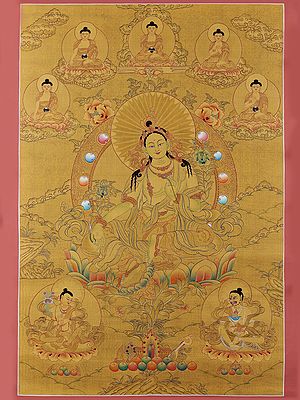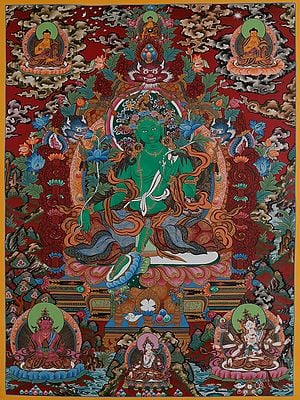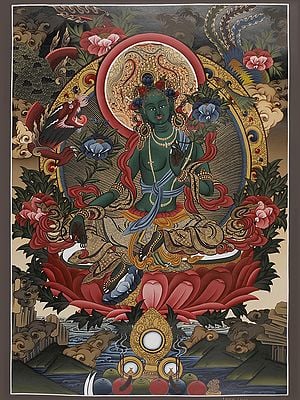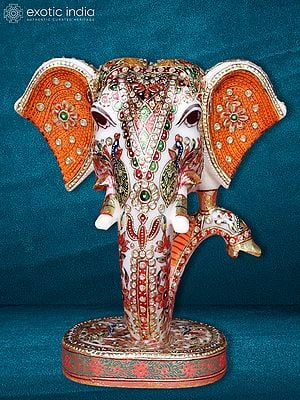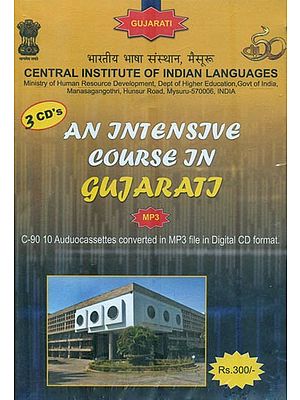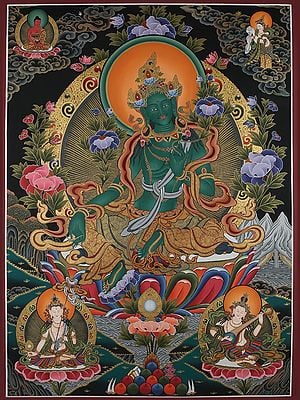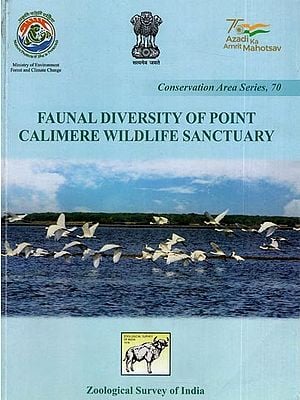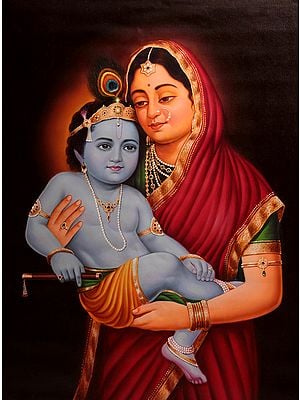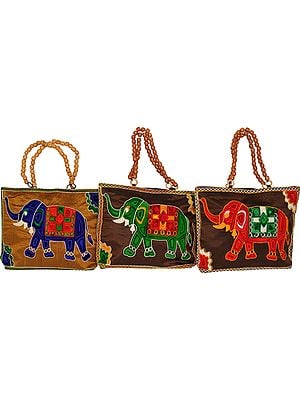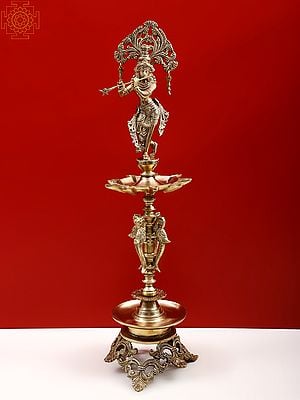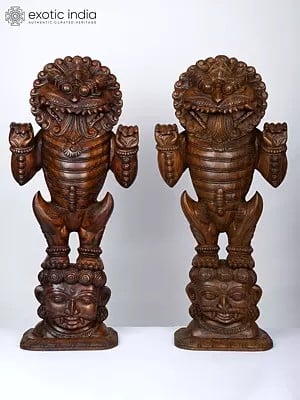The Science of Self-Realizations (Collected Talks and Essays on Realizing God in Daily Life)
| Specifications |
| Publisher: ISKCON | |
| Author Bhaktivedanta Swami Prabhupada | |
| Language: English | |
| Pages: 504 | |
| Cover: PAPERBACK | |
| 9.40 X 6.30 inch | |
| Weight 830 gm | |
| Edition: 2023 | |
| ISBN: 9789383095889 | |
| NAR520 |
| Delivery and Return Policies |
| Usually ships in 10 days | |
| Returns and Exchanges accepted within 7 days | |
| Free Delivery |
Srila Prabhupada, a true holy man (sadhu) of deep intellectual and spiritual sensitivity had deep concern and compassion for our spiritually deprived society. For the enlightenment of humanity, he translated in modern English the same timeless knowledge that other great self-realized teachers have spoken for millennia-knowledge that opens up the secrets of the self within us, nature and the universe, and the Supreme Self within and without.
This enthralling volume covers everything from Srila Prabhupada's poignant exchange with a noted cardiologist on "soul research," his revelations to London Broadcasting Company on reincarnation, his telling remarks to the London Times on real and false gurus, his dialogue with a German Benedictine monk on Krishna and Christ, his insights on the law of karma to his conversation with a leading Russian scholar on spiritual communism and so much more.
The Science of Self-Realization will ignite inspiration and enlightenment within, and enable the self to unite with the divine.
His Divine Grace A.C. Bhaktivedanta Swami Prabhupada appeared in this world in 1896 in Calcutta, India. He first met his spiritual master, Srila Bhaktisiddhanta Sarasvati Gosvarni, in Calcutta in 1922. Bhaktisiddhanta Sarasvati, a prominent religious scholar and the founder of sixty-four Gaudiya Mathas (Vedic institutes) in India, liked this educated young man and convinced him to dedicate his life to teaching Vedic knowledge. Srila Prabhupada became his student and, in 1933, his formally initiated disciple.
At their first meeting Srila Bhaktisiddhanta Sarasvati requested Srila Prabhupada to broadcast Vedic knowledge in English. In the years that followed, Srila Prabhupada wrote a commentary on the Bhagavad-gita, assisted the Gaudiya Matha in its work, and, in 1944, started Back to Godhead, an English fortnightly magazine. Single-handedly, Srila Prabhupada edited it, typed the manuscripts, checked the proofs, and even distributed the individual copies. The magazine is now being continued by his disciples.
In 1950 Srila Prabhupada retired from married life, adopting the vanaprastha (retired) order to devote more time to his studies and writing. He traveled to the holy city of Vrndavana, where he lived in humble circumstances in the historic temple of Radha-Damodara. There he engaged for several years in deep study and writing. He accepted the renounced order of life (sannyasa) in 1959. At Radha-Damodara, Srila Prabhupada began work on his life's masterpiece: a multivolume commentated translation of the eighteen-thousand-verse ,Srimad-Bhagavatam (Bhagavata Purana). He also wrote Easy Journey to Other Planets.
After publishing three volumes of the Bhagavatam, Srila Prabhupada came to the United States, in September 1965, to fulfill the mission of his spiritual master. Subsequently, His Divine Grace wrote more than fifty volumes of authoritative commentated translations and summary studies of the philosophical and religious classics of India.
When he first arrived by freighter in New York City, Srila Prabhupada was practically penniless. Only after almost a year of great difficulty did he establish the International Society for Krsna Consciousness, in July of 1966. Before he passed away on November 14, 1977, he had guided the Society and seen it grow to a worldwide confederation of more than one hundred aSramas, schools, temples, institutes, and farm communities.
In 1972 His Divine Grace introduced the Vedic system of primary and secondary education in the West by founding the gurukula school in Dallas, Texas. Since then his disciples have established similar schools throughout the United States and the rest of the world.
Srila Prabhupada also inspired the construction of several large international cultural centers in India. The center at Sridhama Mayapur is the site for a planned spiritual city, an ambitious project for which construction will extend over many years to come. In Vrndavana are the magnificent Krsna-Balarama Temple and International Guesthouse, gurukula school, and Srila Prabhupada Memorial and Museum. There are also major cultural and educational centers in Bombay, Delhi and Ahmedabad. Major centers am planned in a dozen other important locations on the Indian subcontinent.
Srila Prabhupada's most significant contribution, however, is his books. Highly respected by scholars for their authority, depth, and clarity, they are used as textbooks in numerous college courses. His writings have been translated into over fifty languages. The Bhaktivedanta Book Trust, established in 1972 to publish the works of His Divine Grace, has thus become the world's largest publisher of books in the field of Indian religion and philosophy.
In just twelve years, despite his advanced age. Srila Prabhupada circled the globe fourteen times on lecture tours that took him to six continents. Yet this vigorous schedule did not slow his prolific literary output. His writings constitute a veritable library of Vedic philosophy. religion, literature, and culture.
From the very start, I knew that His Divine Grace A.C. Bhaktivedanta Swami Prabhupada was the most extraordinary person I had ever met. The first meeting occurred in the summer of 1966, in New York City. A friend had invited me to hear a lecture by "an old Indian svami on lower Manhattan's Bowery. Overwhelmed with curiosity about a svarni lecturing on skid row, I went there and felt my way up a pitch-black staircase. A bell-like, rhythmic sound got louder and clearer as I climbed higher. Finally I reached the fourth floor and opened the door, and there he was.
About fifty feet away from where I stood, at the other end of a long, dark room, he sat on a small dais, his face and saffron robes radiant under a small light. He was elderly, perhaps sixty or so, I thought, and he sat cross-legged in an erect, stately posture. His head was shaven, and his powerful face and reddish horn-rimmed glasses gave him the look of a monk who had spent most of his life absorbed in study. His eyes were closed, and he softly chanted a simple Sanskrit prayer while playing a hand drum. The small audience joined in at intervals, in call-and-response fashion. A few played hand cymbals, which accounted for the bell-like sounds I'd heard. Fascinated, I sat down quietly at the back, tried to participate in the chanting, and waited.
After a few moments the svami began lecturing in English, apparently from a huge Sanskrit volume that lay open before him. Occasionally he would quote from the book, but more often from memory. The sound of the language was beautiful, and he followed each passage with meticulously detailed explanations.
He sounded like a scholar, his vocabulary intricately laced with philosophical terms and phrases. Elegant hand gestures and animated facial expressions added considerable impact to his delivery. The subject matter was the most weighty I had ever encountered: "I am not this body. I am not an Indian.... You are not Americans.... We are all spirit souls...."
After the lecture someone gave me a pamphlet printed in India. A photo showed the svami handing three of his books to Indian Prime Minister Lal Bahadur Shastri. The caption quoted Mr. Shastri as saying that all Indian government libraries should order the books. "His Divine Grace A.C. Bhaktivedanta Swami Prabhupada is doing great work," the Prime Minister said in another small tract, "and his books are significant contributions to the salvation of mankind." I purchased copies of the books, which I learned the svami had brought over from India. After reading the jacket flaps, the small pamphlet, and various other literatures, I began to realize that I had just met one of India's most respected spiritual leaders.
Who is Srila Prabhupada?" people often ask, and it is always a hard question to answer. For Srila Prabhupada always eclipsed conventional designations. At various times people have called him a scholar, a philosopher, a cultural ambassador, a prolific author, a religious leader, a spiritual teacher, a social critic, and a holy man. In truth, he was all these things and more. Certainly no one could ever have confused him with the modem entrepreneurial "gurus" who come to the West with slickly packaged, watered-down versions of Eastern spirituality (to satisfy our urge for instant well-being and exploit our well-documented spiritual naivete). Srila Prabhupada was, rather, a true holy man (sadhu) of deep intellectual and spiritual sensitivity-he had deep concern and compassion for a society which, to such a large degree, lacks real spiritual dimension.
For the enlightenment of human society, Srila Prabhupada produced some eighty volumes of translations and summary studies of India's great spiritual classics, and his work has seen print both in English and in many foreign languages. Also, in 1944 Srila Prabhupada single-handedly launched a magazine called Back to Godhead, which today has a monthly circulation of more than half a million copies in English alone. Nearly all the interviews, lectures, essays, and letters chosen for The Science of Self Realization first appeared in Back to Godhead.
In these pages Srila Prabhupada presents the same message that the great sage Vyasadeva recorded thousands of years ago, the message of ancient India's Vedic literatures. As we shall see, he quotes freely and often from the Bhagavad-gita, the Srimad-Bhagavatam, and other classic Vedic texts. He transmits in modern English the same timeless knowledge that other great self-realized teachers have spoken for millennia-knowledge that opens up the secrets of the self within us, nature and the universe, and the Supreme Self within and without. Srila Prabhupada speaks with startling clarity and a kind of convincing, simple eloquence and proves just how relevant the science of self-realization is to our modern world and our own lives.
Among the thirty-six selections chosen for this special book, we hear Srila Prabhupada's moving poem upon his arrival in America, his exchange with a noted cardiologist on "soul research," his revelations to London Broadcasting Company on reincarnation, his telling remarks to the London Times on real and false gurus. his dialogue with a German Benedictine monk on Krsna and Christ, his insights on superconsciousness and the law of karma, his conversation with a leading Russian scholar on spiritual communism, and his intimate talk with his disciples on the sham of modern science.
**Contents and Sample Pages**
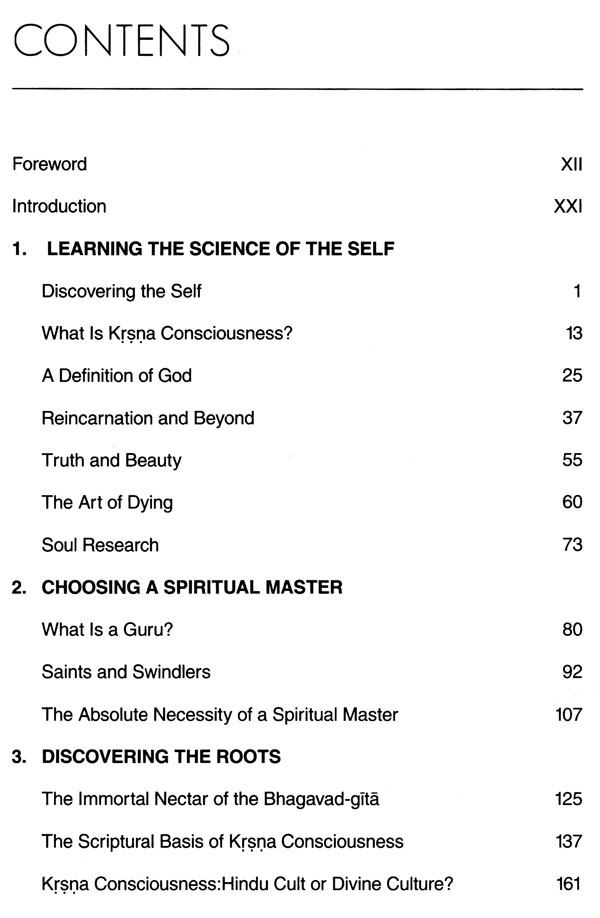
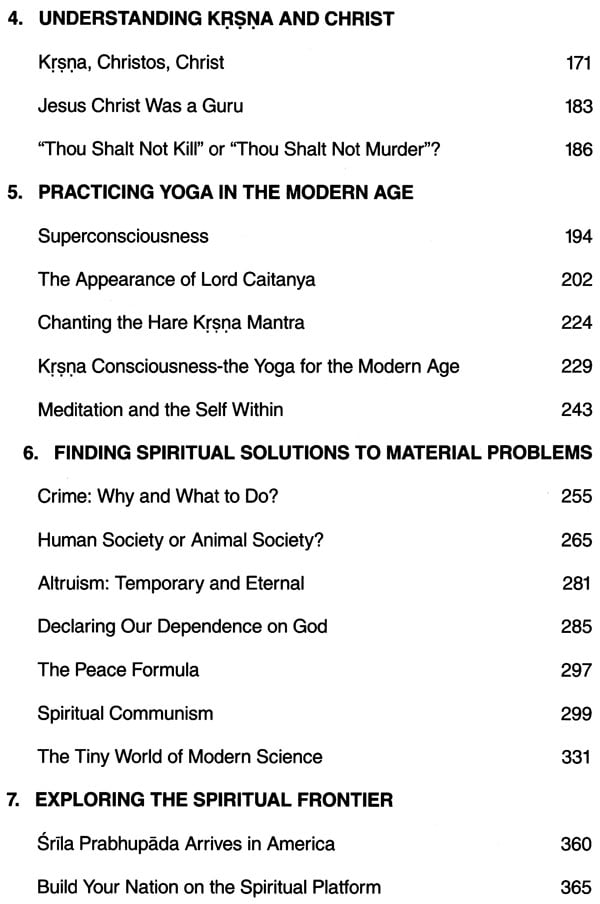
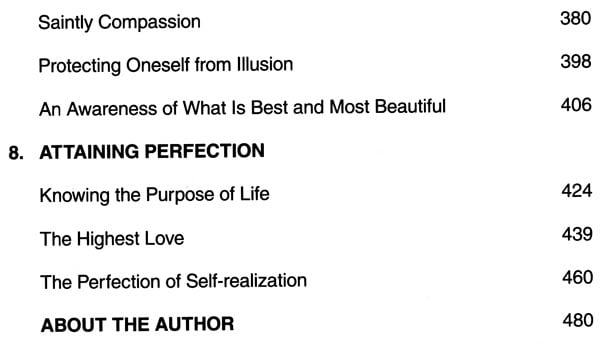
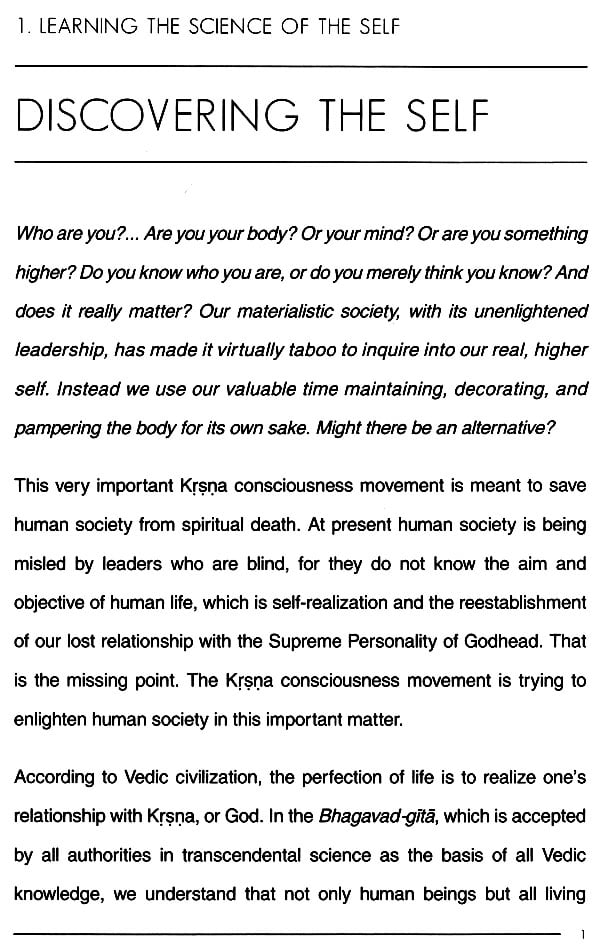
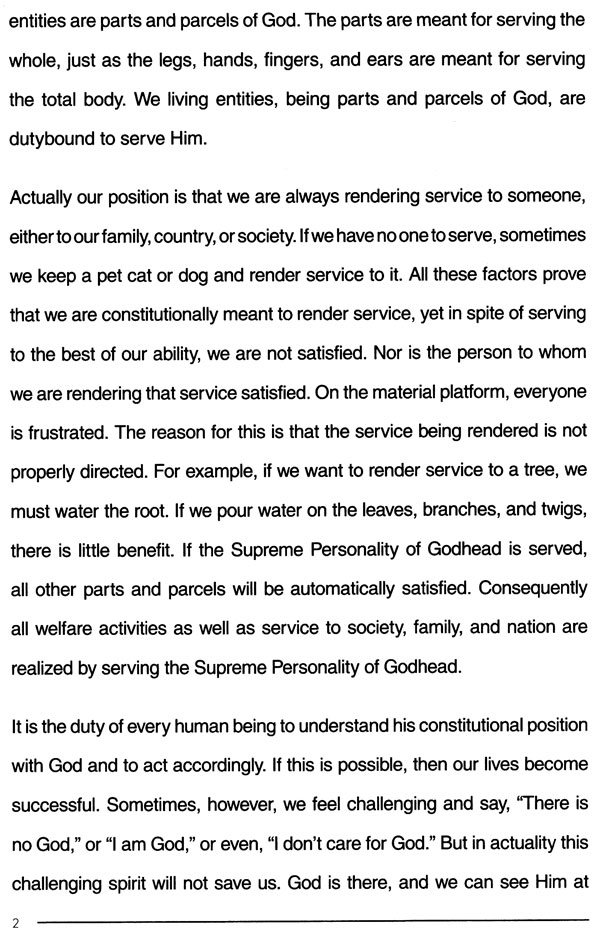
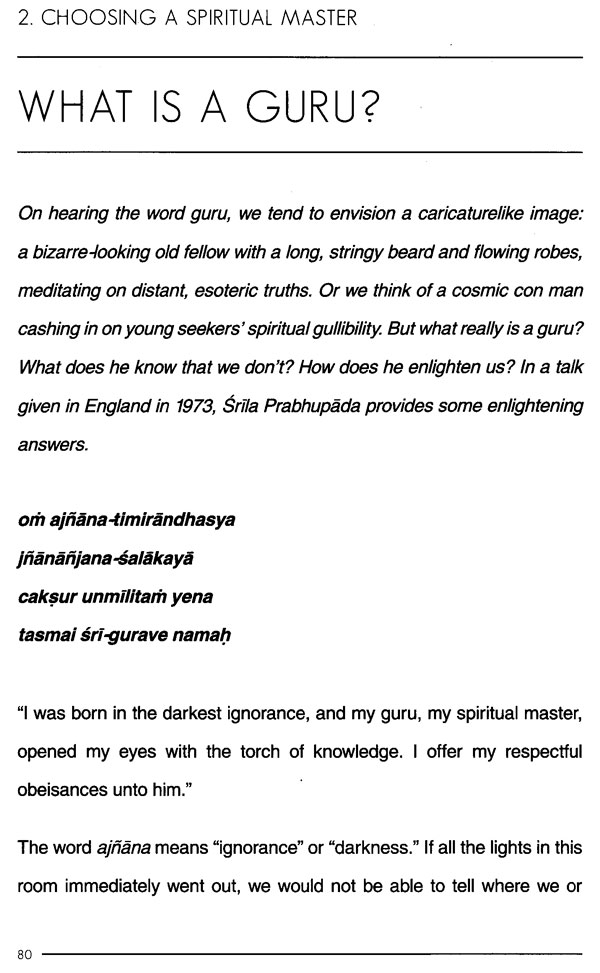
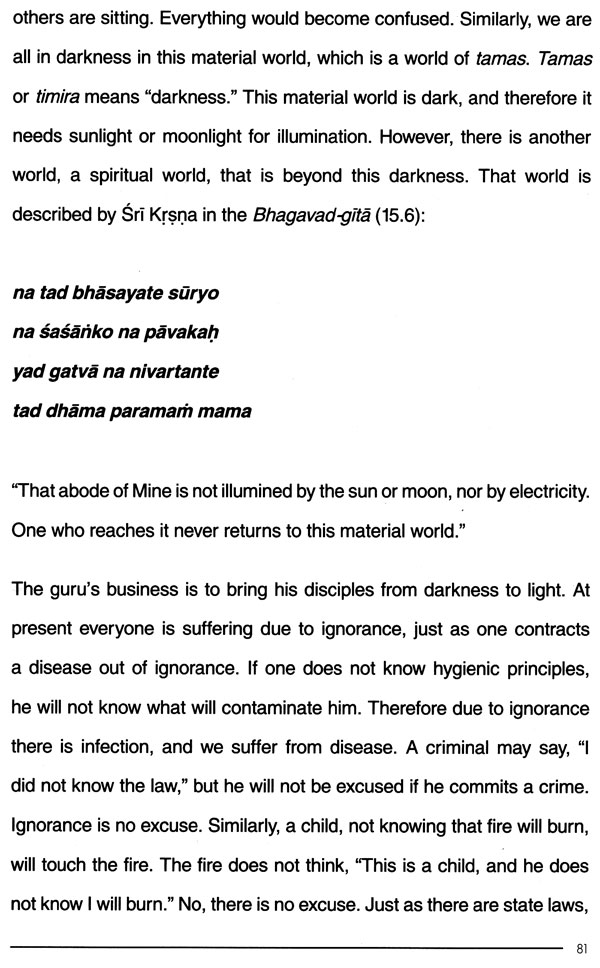
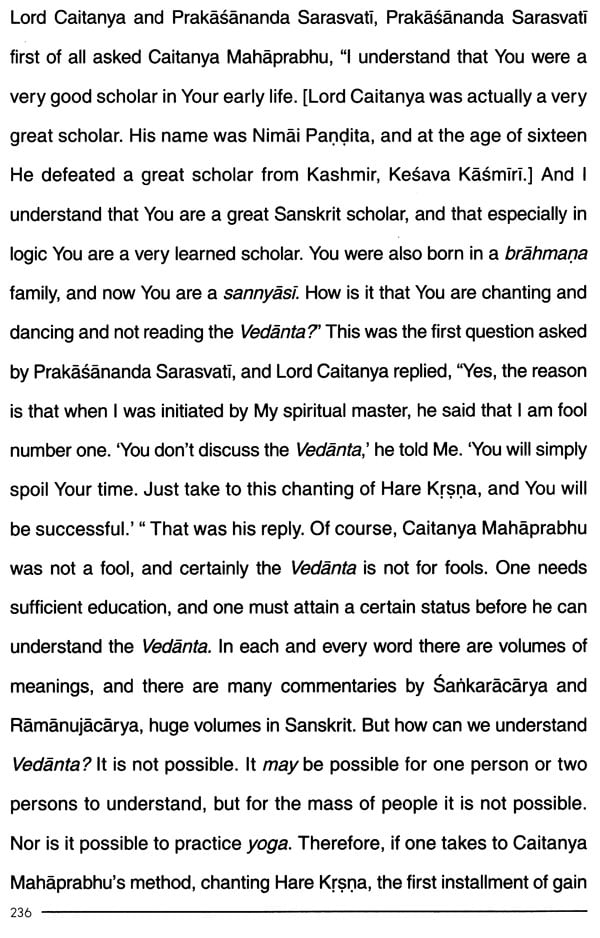

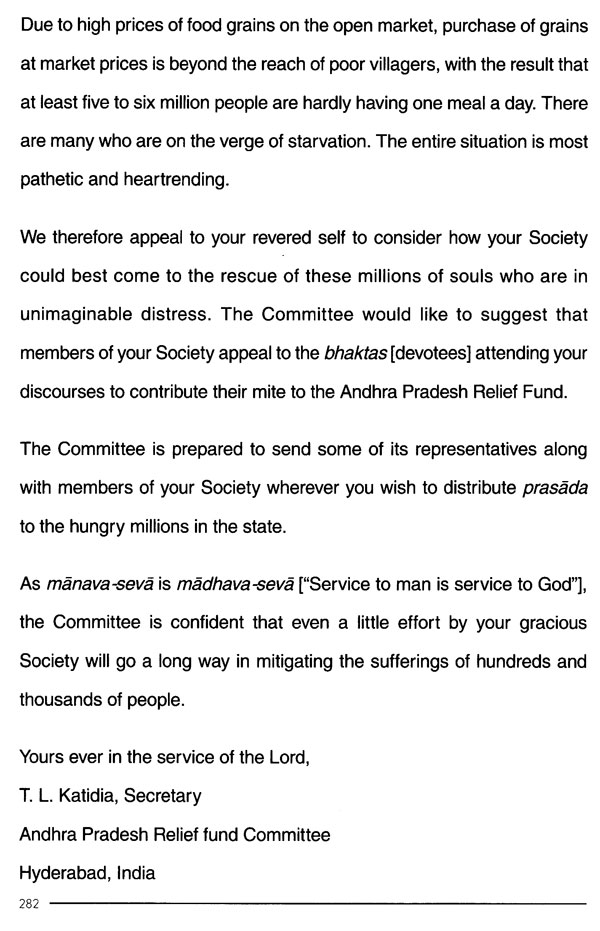
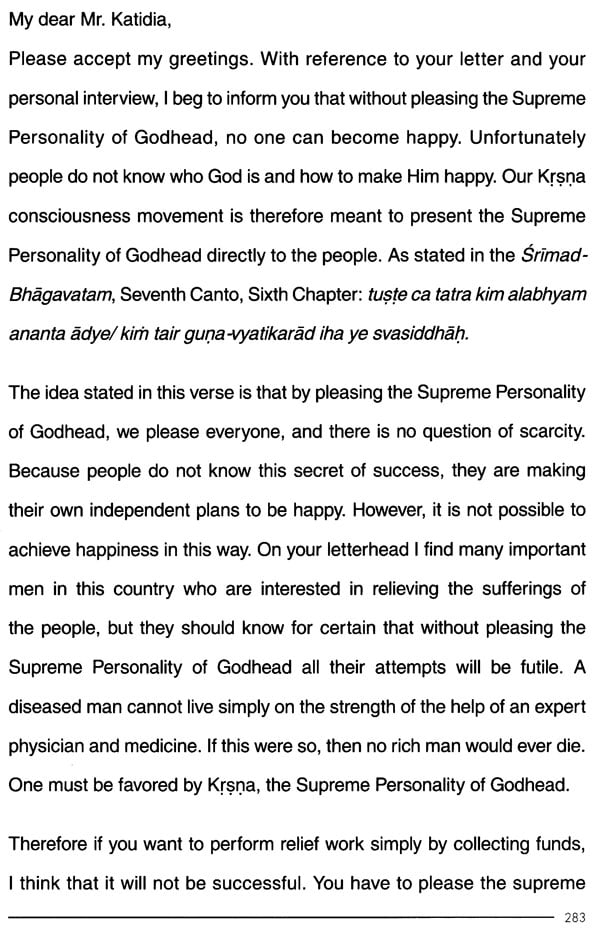
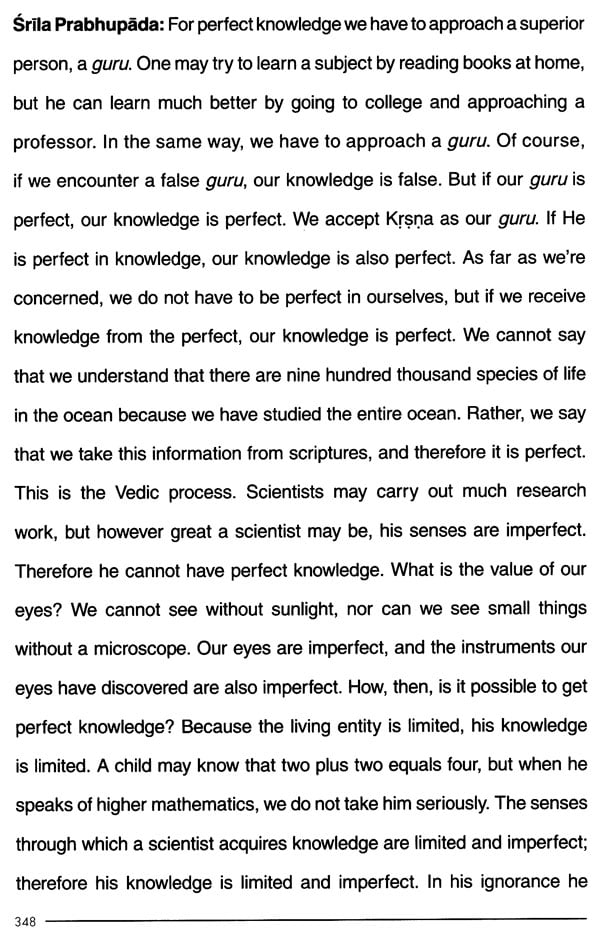
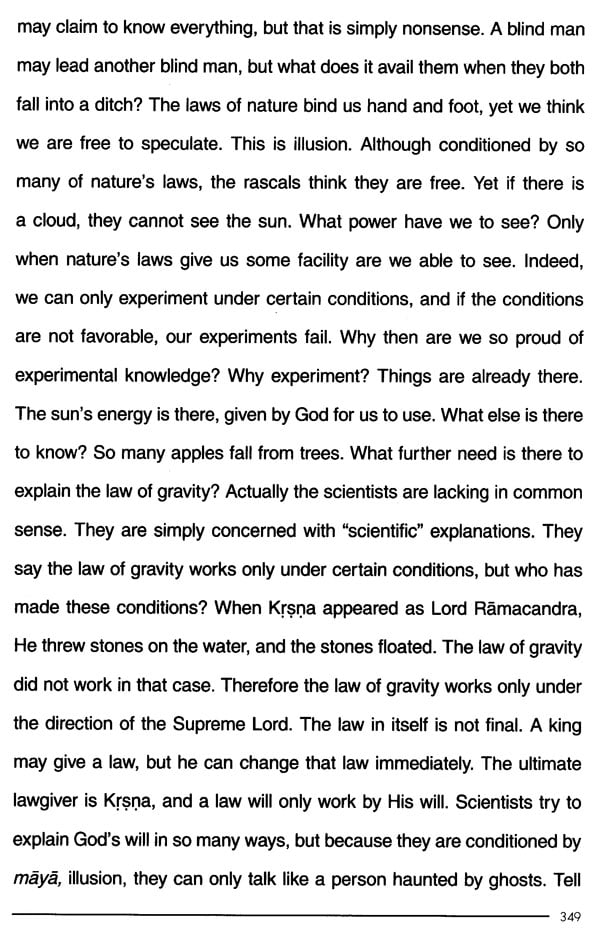
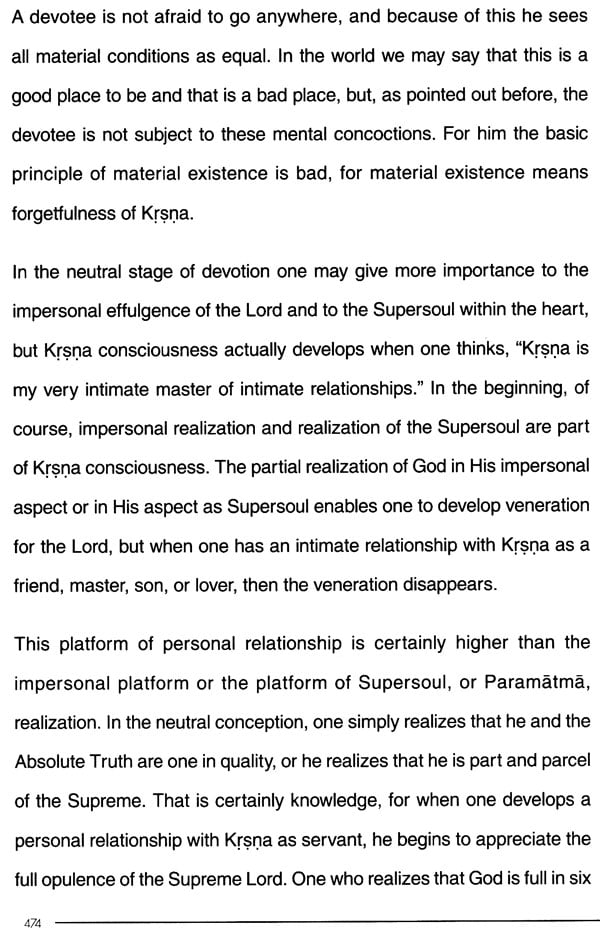
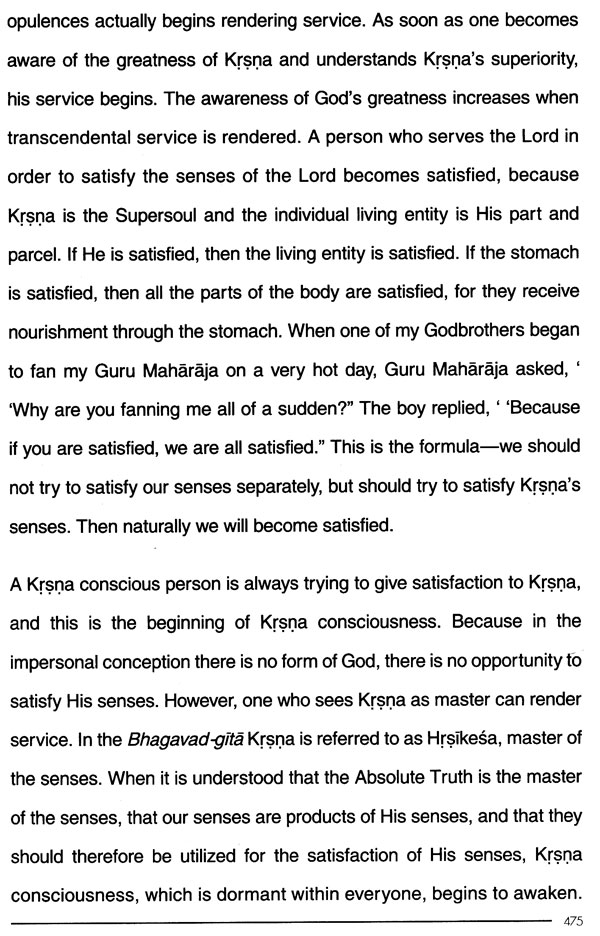
-
Q. What locations do you deliver to ?A. Exotic India delivers orders to all countries having diplomatic relations with India.
-
Q. Do you offer free shipping ?A. Exotic India offers free shipping on all orders of value of $30 USD or more.
-
Q. Can I return the book?A. All returns must be postmarked within seven (7) days of the delivery date. All returned items must be in new and unused condition, with all original tags and labels attached. To know more please view our return policy
-
Q. Do you offer express shipping ?A. Yes, we do have a chargeable express shipping facility available. You can select express shipping while checking out on the website.
-
Q. I accidentally entered wrong delivery address, can I change the address ?A. Delivery addresses can only be changed only incase the order has not been shipped yet. Incase of an address change, you can reach us at help@exoticindia.com
-
Q. How do I track my order ?A. You can track your orders simply entering your order number through here or through your past orders if you are signed in on the website.
-
Q. How can I cancel an order ?A. An order can only be cancelled if it has not been shipped. To cancel an order, kindly reach out to us through help@exoticindia.com.
















